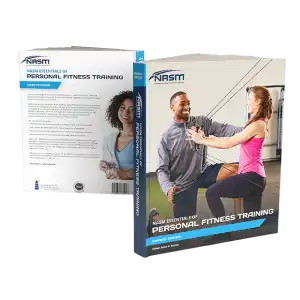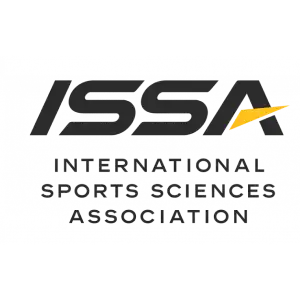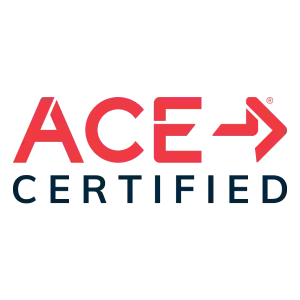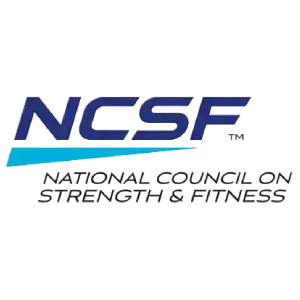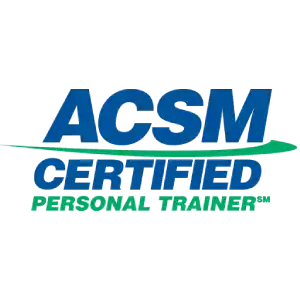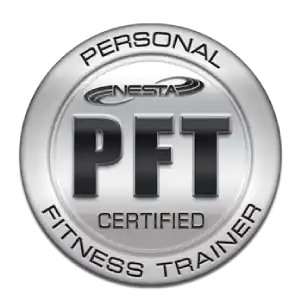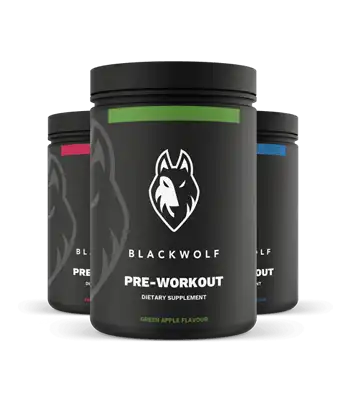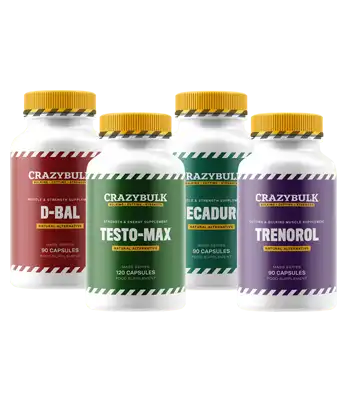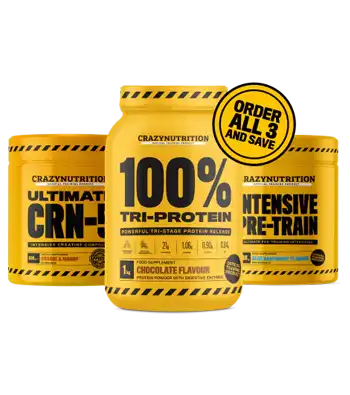Why Personal Trainer Certifications Matter
Before we dive into the nitty-gritty, let’s talk about why getting certified personal trainer is so important. We spoke with Sergio Pedemonte, Certified Personal Trainer and CEO & Founder of Your House Fitness, he says that “certain PT certifications require the bare minimum knowledge to pass, while other PT certifications don’t include a practical test, which is very important when it comes to how a trainer trains a client.”
It proves you understand the science behind fitness, how to design safe and effective workouts, and how to help people reach their goals. Plus, the fitness industry is growing like crazy! The U.S. Bureau of Labor Statistics says jobs for fitness trainers are expected to grow 14% from 2022 to 2032.
Sergio says, “You have other personal trainer certifications that not only offer a theoretical component but also require passing a practical fitness exam. It helps to be certified, but I think in the future there needs to be a bit more experience required for trainers to be certified.”
Best Personal Training Certifications
Online Best Personal Training Certification Overall: NASM
Best Certification for Personal Trainer for Student Support: ISSA
The Best Personal Trainer Certification for Future Specialization: ACE
Most Best Value Personal Trainer Certification: NCSF
Best Personal Training Certification to Work with Athletes: NSCA
National Best Cheap Personal Training Certification: NFPT
Best for Working with Special Populations or in Clinical Settings: ACSM
Best with Long Recertification Term: NESTA
The Cream of the Crop: Top Personal Trainer Certifications
Alright, let’s get into the good stuff. Here are the best personal trainer certifications out there, each with its own unique strengths.
#1 National Academy of Sports Medicine(NASM)
The Lowdown:
- The NASM is like the Harvard of personal training certs. It’s super well-respected in the industry and known for its science-based approach.
What Makes It Special:
- The OPT Model: This is NASM’s secret sauce. It’s a system for designing workouts that works for everyone from couch potatoes to elite athletes.
- Lots of Study Options: Whether you’re a bookworm or more of a visual learner, NASM’s got you covered with textbooks, online courses, and even mobile apps.
Show Me the Money:
- Prices range from $899 to $1,999, depending on how much help you want with studying.
The Test:
You can take it online at home or at a testing center. It’s proctored (that means someone’s watching to make sure you don’t cheat), and it’s accredited by the NCCA (that’s a big deal in the certification world).
Keeping It Fresh:
You’ll need to recertify every two years by completing some continuing education and renewing your CPR/AED cert.
Overview
The National Academy of Sports Medicine (NASM) offers a science-based approach to personal training certification, with a strong emphasis on their proprietary Optimum Performance Training (OPT) model.
The NASM is ideal for those seeking a well-rounded, highly respected certification in the fitness industry. What sets NASM apart is its comprehensive corrective exercise component, which equips trainers with the skills to address muscular imbalances and improve overall functional fitness.
This certification is particularly suited for trainers who want a solid foundation in exercise science and biomechanics, making it a top choice for those aiming to work with a diverse clientele, including those with specific physical limitations or goals.
#2 International Sports Sciences Association(ISSA)
The Scoop:
- ISSA is all about flexibility and support. If you’re worried about studying on your own, this might be the cert for you.
What’s Cool About It:
- Tons of Help: You get access to study groups, mentors, and an online forum to chat with other students.
- Job Guarantee: Yep, you read that right. ISSA will help you find a job within 90 days of getting certified, or you get your money back.
Cost:
- About $1,000 for the full package.
Testing Time:
You can take the test online, either open-book or proctored. The proctored version is NCCA-accredited.
Staying Certified:
You’ll need 20 hours of continuing education every two years.
Overview
The International Sports Sciences Association (ISSA) stands out for its flexible learning approach and strong support systems. This certification is best suited for self-paced learners who desire ongoing assistance throughout their study process.
ISSA’s standout feature is its job guarantee program, which provides an extra layer of security for newly certified trainers entering the job market. The program offers a comprehensive curriculum that covers not only exercise science and program design but also business and marketing aspects of personal training.
This makes ISSA an excellent choice for those who plan to start their own training business or want a well-rounded education in both the practical and business sides of fitness.
#3 American Council on Exercise (ACE)
The Deal:
- ACE is great if you want to specialize later on. They offer tons of advanced certs in areas like nutrition and senior fitness.
Highlights:
- Well-Rounded Education: ACE covers everything from basic anatomy to how to motivate clients.
- Behavior Change Focus: You’ll learn not just about exercise, but how to help clients stick to their goals.
Price Tag:
- Packages range from $675 to $975.
Exam Details:
You can take it at home with a live online proctor or at a testing center. It’s NCCA-accredited.
Keeping Up:
You’ll need 2.0 CEUs (about 20 hours of continuing education) every two years.
Overview
The American Council on Exercise (ACE) certification offers a balanced approach, covering both exercise science and client interaction skills. It’s particularly well-suited for trainers interested in behavior change and client psychology, making it an excellent choice for those who want to focus on the motivational aspects of personal training.
ACE’s standout feature is its wide range of specialization options, allowing trainers to tailor their expertise to specific populations or training styles after obtaining their initial certification.
This program is ideal for trainers who see themselves working with a diverse clientele and want the flexibility to specialize in areas such as weight management, senior fitness, or youth exercise.
#4 National Council on Strength and Fitness (NCSF)
The Rundown:
- NCSF offers solid education at a lower price point. It’s a great value option.
What’s Great:
- Flexible Timeline: You can take as long as you need to study before registering for the exam.
- Recognized by Major Gyms: NCSF certs are accepted at places like 24 Hour Fitness and Gold’s Gym.
Cost:
- Packages range from $399 to $699.
The Test:
You can take it at home or at a testing center. It’s NCCA-accredited.
Staying Current:
You need 2.0 CEUs every two years, and your CPR renewal counts towards that.
Overview
The National Council on Strength and Fitness (NCSF) certification focuses on the practical application of strength and conditioning principles. It’s an excellent choice for those seeking a solid foundation in personal training at a lower price point compared to some other certifications.
The NCSF program stands out for its flexible study timeline, allowing candidates to prepare at their own pace before scheduling the exam. This certification is particularly well-suited for individuals who have a background in strength training or athletics and want to translate that knowledge into a professional training career.
The NCSF’s curriculum emphasizes real-world application, making it a good fit for trainers who prefer a hands-on approach to learning and practicing.
#5 National Strength and Conditioning Association (NSCA)
The Basics:
- NSCA is the go-to if you want to work with athletes or dive deep into exercise science.
Standout Features:
- Science Heavy: You’ll learn a ton about kinesiology, anatomy, and physiology.
- Great for Future Specialization: If you think you might want to become a strength and conditioning coach later, this is a great foundation.
Price:
- Individual study materials are available, or you can buy a package for about $800.
Exam Info:
It’s a proctored test at a testing center, NCCA-accredited.
Recertification:
You need 6.0 CEUs every 3 years – that’s about 60 hours total.
Overview
The National Strength and Conditioning Association (NSCA) certification is known for its in-depth coverage of exercise science with a strong focus on athletic performance. This program is best suited for aspiring strength coaches and those who plan to work primarily with athletes or in sports performance settings.
The NSCA’s standout feature is its strong emphasis on research and scientific principles, making it an excellent choice for trainers who want to stay at the forefront of exercise science.
This certification is particularly valuable for those who may consider pursuing advanced degrees in exercise physiology or related fields, as it provides a robust scientific foundation that aligns well with academic pursuits in sports science.
#6 National Federation of Professional Trainers (NFPT)
The Skinny:
- NFPT is one of the most affordable options out there, but it doesn’t skimp on quality.
What’s Awesome:
- Budget-Friendly: You can get certified for as little as $249.
- Longer Study Time: You have up to a year to take the exam after signing up.
Cost:
$249 to $499
Testing:
You can take it at home with online proctoring or at a testing center. It’s NCCA-accredited.
Keeping Certified:
You need 2.0 CEUs every 2 years, and there are some free CEU options available.
Overview
The National Federation of Professional Trainers (NFPT) certification focuses on fundamental personal training skills and offers an affordable approach to entering the field. This program is best for budget-conscious individuals who are just starting their journey in the fitness industry.
The NFPT’s standout feature is its extended study period, giving candidates up to one year to prepare for the exam. This makes it an excellent choice for those who are balancing their certification studies with other commitments or who prefer a more relaxed study pace.
The NFPT curriculum covers essential topics in personal training, making it suitable for those who want a straightforward, no-frills approach to learning the basics of fitness instruction.
#7 American College of Sports Medicine (ACSM)
The Overview:
- ACSM is great if you’re interested in working with special populations or in clinical settings.
Cool Stuff:
- In-Depth Physiology: You’ll learn a ton about how the body works and responds to exercise.
- Focus on Exercise as Medicine: Great for those interested in the health benefits of fitness beyond just looking good.
Price:
$299 to $649
Exam Details:
You can take it at home or at a testing center. It’s NCCA-accredited.
Staying Up-to-Date:
You need 45 hours of continuing education every 3 years.
Overview
The American College of Sports Medicine (ACSM) certification takes a clinical approach to exercise and fitness, making it ideal for those interested in working with clinical populations or in research settings.
This program is best suited for trainers who want to work in medical fitness centers, cardiac rehabilitation, or other health-care-related environments. The ACSM’s standout feature is its strong emphasis on exercise as preventive medicine, providing in-depth knowledge on how fitness can be used to manage and prevent chronic diseases.
This certification is particularly valuable for trainers who have a background in health sciences or who aspire to bridge the gap between fitness and healthcare in their careers.
#8 National Exercise & Sports Trainers Association(NESTA)
The Gist:
- NESTA stands out for its longer recertification period – 4 years instead of the usual 2.
Highlights:
- Longer Cert Validity: Your certification is good for 4 years.
- International Recognition: Great if you think you might want to train abroad.
Cost:
$349 to $697
The Test:
It’s a proctored exam at a testing center, NCCA-accredited.
Recertification:
You need 4.0 CEUs every 4 years.
Overview
The National Exercise & Sports Trainers Association (NESTA) certification focuses on practical skills with a strong emphasis on the business aspects of personal training. This program is best for trainers looking to start their own business or who want to combine fitness knowledge with entrepreneurial skills.
NESTA’s standout feature is its longer certification period, requiring recertification every four years instead of the typical two, which can be more convenient for busy professionals.
The curriculum covers a wide range of topics, from exercise science to marketing and business management, making it a comprehensive choice for those who see themselves as not just trainers, but fitness entrepreneurs.
How to Choose the Right Personal Trainer Certification for You
Selecting the perfect personal trainer certification is crucial for your career. Here’s an in-depth look at factors to consider:
Accreditation Matters
Accreditation is the seal of approval that ensures your certification meets industry standards. Here’s why it’s important:
- NCCA (National Commission for Certifying Agencies): This is the gold standard in the fitness industry. NCCA accreditation means the certification program has met rigorous standards for developing, implementing, maintaining, and governing a certification program.
- DEAC (Distance Education Accrediting Commission): Important for online workout programs, DEAC ensures quality in distance education.
- NBFE (National Board of Fitness Examiners): While less common, NBFE accreditation is also respected in the industry.
“Accreditation guarantees that the certification meets industry standards and is recognized by employers, adding credibility to your qualifications,” said by Sarah A.O. Isenberg, Nationally Board Certified Health Coach, Certified Personal Trainer, Precision Nutrition Level 1 Nutrition Coach, Thrive Guide Health Coaching
.
How Do You Learn Best?
Everyone has a unique learning style. Choose a certification program that aligns with your preferences:
- Visual Learners: Look for programs with lots of videos, infographics, and charts.
- Auditory Learners: Seek out certifications offering audio lectures or podcasts.
- Kinesthetic Learners: Programs with hands-on workshops or interactive online simulations might be best for you.
- Reading/Writing Preference: If you love textbooks and written materials, many traditional programs cater to this style.
Consider programs that offer a mix of learning materials to keep you engaged and help reinforce concepts through different mediums.
Exam Format
The format of the final exam can significantly impact your success. Consider these factors:
- Online vs. In-Person: Some certifications offer the flexibility of online proctored exams, while others require you to visit a testing center.
- Question Types: Exams may include multiple-choice, true/false, essay questions, or even practical demonstrations.
- Time Limits: Check how long you have to complete the exam and if it’s timed section by section or as a whole.
- Retake Policies: Understand the rules and costs associated with retaking the exam if needed.
Choose a format that plays to your strengths and minimizes test anxiety.
Recertification Requirements
Staying certified requires ongoing education. Here’s what to consider:
- Frequency: Most certifications require recertification every 2-3 years, but some may differ.
- CEU Requirements: Understand how many Continuing Education Units (CEUs) you’ll need and how to earn them.
- Cost: Factor in the ongoing costs of recertification, including CEU courses and renewal fees.
- Specialization Opportunities: Some programs offer advanced certifications that can count towards your recertification requirements.
Look for programs that offer diverse and interesting CEU options to keep your learning engaging.
Future Plans
Think about your long-term career goals:
- Specializations: In a recent interview Joao Martins, a leading authority in fitness Personal Trainer & Coach at Equinox, offered his insights when we asked about future trends. According to him “I foresee an increasing emphasis on specialized certifications and digital competency, reflecting the industry’s shift towards personalized fitness programs and online training platforms. This evolution will likely lead to more comprehensive training and a higher level of expertise among fitness professionals.”
- Career Advancement: Some certifications are better recognized in certain settings, like clinical environments or elite athletic training.
- Education Pathways: If you’re considering further education, look for certifications that align with or offer credits toward degree programs.
Your certification should be a stepping stone to where you want to be in 5-10 years.
Industry Recognition
The reputation of your certification can impact job prospects:
- Gym Preferences: Large gym chains often have preferred certification lists. Check with potential employers.
- International Recognition: If you plan to work abroad, ensure your certification is internationally recognized.
- Insurance Compatibility: Some insurance providers may require specific certifications for liability coverage.
Research which certifications are most respected in your desired work environment.
What You Need to Get Started
Before enrolling in a certification program, ensure you meet these common prerequisites:
- Age: Most programs require you to be at least 18 years old.
- Education: A high school diploma or equivalent is typically necessary.
- CPR/AED Certification: This is a universal requirement. Make sure it’s from a recognized provider like the American Red Cross or American Heart Association.
- Health and Fitness Background: While not always required, a basic understanding of fitness principles is beneficial.
- Language Proficiency: Ensure you’re comfortable with the language of instruction and examination.
- Technology Requirements: For online programs, check that you have the necessary computer and internet capabilities.
Where Can This Certification Take You?
A personal trainer certification opens doors to various career paths:
- Commercial Gyms: Work in established fitness centers, from local clubs to national chains.
- Boutique Fitness Studios: Specialize in specific training methods or classes.
- Corporate Wellness: Design and implement fitness programs for companies.
- Online Coaching:Build a virtual client base and offer remote training services.
- Private Training: Start your own business or work one-on-one with clients in their homes.
- Sports Teams: Work with amateur or professional athletes to enhance performance.
- Rehabilitation Centers: Collaborate with medical professionals in recovery and therapy settings.
- Cruise Ships or Resorts: Combine your passion for fitness with travel opportunities.
- Education: Teach fitness classes or become an instructor for certification programs.
- Writing and Media: Create fitness content for magazines, websites, or social media platforms.
Never Stop Learning
Continuous education is key to a successful fitness career:
- Workshops and Seminars: Attend industry events to learn new techniques and network.
- Online Courses: Take advantage of webinars and e-learning opportunities.
- Cross-Training: Experience different fitness modalities to broaden your expertise.
- Reading: Stay updated with the latest research through scientific journals and industry publications.
- Mentorship: Seek guidance from experienced professionals in your field.
- Professional Associations: Join organizations like IDEA or IHRSA for resources and community.
- Advanced Certifications: Pursue specialized certifications in areas like nutrition, corrective exercise, or sports performance.
- Degree Programs: Consider formal education in exercise science, kinesiology, or related fields.
Comparing the Top Certs
Here’s a quick rundown of how these certs stack up:
- Best Overall: NASM – Great reputation, solid science base.
- Best for Support: ISSA – Lots of help for students who need it.
- Best for Future Specialization: ACE – Tons of advanced cert options.
- Best Value: NCSF – Solid education at a lower price point.
- Best for Working with Athletes: NSCA – Heavy on sports science.
- Most Affordable: NFPT – Quality education on a budget.
- Best for Clinical Settings: ACSM – Great for working with special populations.
- Longest Recertification Period: NESTA – Cert good for 4 years instead of 2.
Tips for Acing Your Best Personal Training Certificate
Prepare thoroughly to ensure success on your certification exam:
- Create a Study Schedule: Set aside dedicated time each day or week for studying.
- Use Multiple Resources: Combine textbooks, online materials, practice exams, and study groups.
- Focus on Weak Areas: Identify and spend extra time on challenging topics.
- Practice Application: Don’t just memorize; understand how to apply concepts in real-world scenarios.
- Take Practice Tests: Familiarize yourself with the exam format and timing.
- Join Study Groups: Collaborate with others to share knowledge and stay motivated.
- Utilize Mnemonics: Create memory aids for complex information.
- Teach Others: Explaining concepts helps reinforce your own understanding.
- Stay Healthy: Maintain good sleep, nutrition for sport performance, and exercise habits while studying.
- Manage Stress: Use relaxation techniques to stay calm and focused during preparation and the exam.
What’s Next for Personal Training Certifications?
Stay ahead of the curve by keeping an eye on these industry trends:
- Technology Integration: Embrace personal training apps for coaches, wearables, and AI-driven training programs.
- Virtual Reality Workouts: Explore immersive fitness experiences for clients.
- Personalized Genetics: Understand how genetic testing can inform personalized training plans.
- Mental Health Focus: Incorporate stress reduction and mindfulness into training programs.
- Functional Aging: Prepare for an increasing demand in senior fitness and wellness.
- Eco-Friendly Fitness: Consider sustainable practices and equipment in your training approach.
- Hybrid Training Models: Combine in-person and online personal coaching for flexibility.
- Nutrition Integration: Expand your knowledge to offer more comprehensive wellness services.
- Recovery Techniques: Stay updated on the latest in recovery science and technology.
- Community Building: Use social media and technology to create engaged fitness communities.
 Conclusion: best personal training certification
Conclusion: best personal training certification
Choosing a best personal training certification is a big decision, but it’s also an exciting one. You’re taking the first step towards an awesome career helping people get healthier and stronger.
Remember, there’s no one “perfect” certification. The best one is the one that fits your goals, learning style, and budget. Whether you go with the science-heavy NASM, the supportive ISSA, or any of the other great options we’ve covered, you’re setting yourself up for success.
So take your time, do your research, and get ready for an amazing journey in the world of fitness. You’ve got this!



